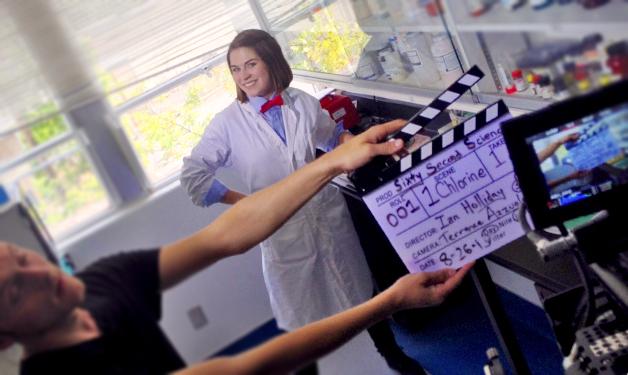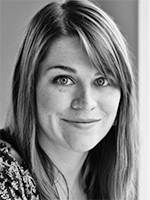
Meet Jenn – neuroscientist and YouTube star sharing science with a creative spin.
Q: What is your area of research and why does it interest you?
A: I research how vascular and metabolic health impacts the brain. More specifically, I study how type-2 diabetes influences the brain’s capacity for recovery after a stroke. I like this line of research because it is something that individuals have a degree of influence over; improving your vascular health through something like exercise has a measurable positive effect on your brain. That’s a really exciting and empowering idea.
Q: You spend a lot of time sharing science with a lay audience. Why is that important to you?
A:Health-focused research education is hugely important because of the relevance of scientific information for the individual. For example, teaching someone to recognize the symptoms of a stroke could one day save a life. Preventative medicine is best accomplished through public awareness of scientific information.
On a more personal level, giving talks for lay audiences is a fantastic way to strengthen my public speaking skills. I’ve had to learn how to distil complex information into the most important points and present it clearly and engagingly. I always learn a lot and have fun!
Q: You’re one of the brains behind Sixty Second Science on YouTube. What has that experience been like?
A:It’s been amazing! I developed the series with my friend Ian Holliday, a filmmaker based in Los Angeles. We found a way to merge our mutual passion for science communication with his top-notch filmmaking skills. It was incredible to see the meticulous attention that Ian and his team bring to the set and to video editing. YouTube offers huge potential for researchers to disseminate knowledge to the lay public in fun and creative ways, and it’s been very cool to be a small part of that. We have a new episode about pain coming out this summer that’s my new personal favourite, so stay tuned for that!
Q: What do you see yourself doing in 20 years?
A: I don’t know exactly where my career will take me, but I want to always have a science focus in my work. I love being a graduate student because I get to do research all day, but I also love teaching and science communication. Hopefully in 20 years I will have a career that includes all of those passions!
Q: What’s one item that you can’t live without when you’re working?
A:My headphones and my music/podcasts! I find listening to music really helps me focus on writing or data analysis, and podcasts are great for the more repetitive tasks that are often the reality of research.



